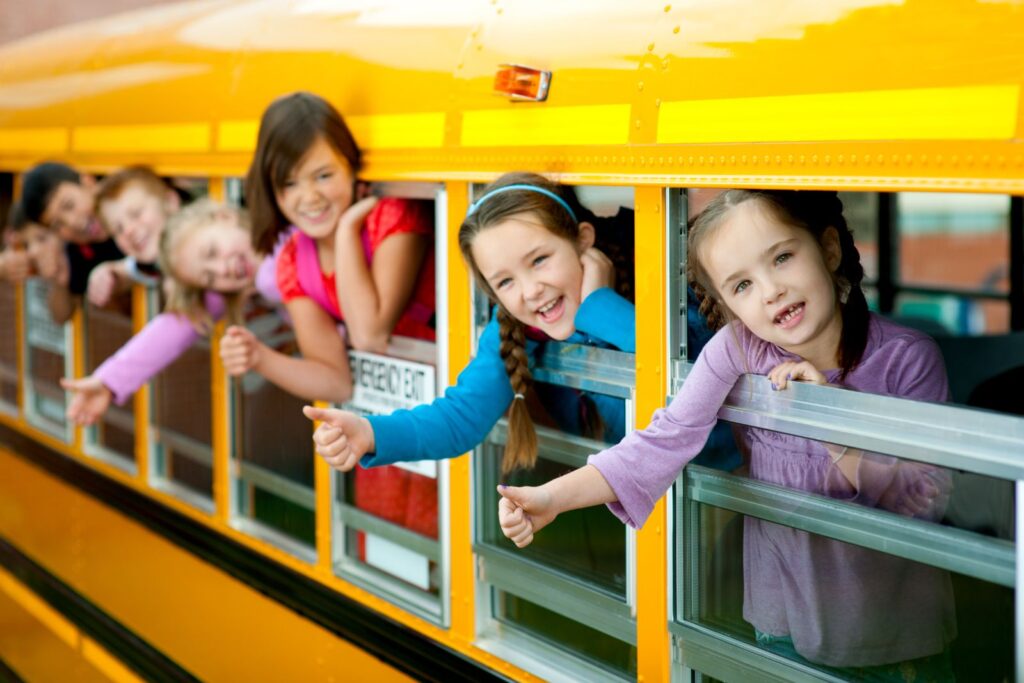Introduction:
The back-to-school season is a time of excitement, anticipation, and often a little bit of stress. As summer draws to a close, the focus shifts to preparing for the new academic year. Proper preparation is key to ensuring that students are ready to hit the ground running, both academically and emotionally. In this comprehensive guide, we’ll explore everything you need to know to make this transition smooth and successful.
Why Back-to-School Preparation is Crucial:
Setting the Stage for Academic Success
Getting ready for school doesn’t just mean buying new clothes and supplies. It’s about setting the stage for a successful academic year. By organizing and planning ahead, students can start the year with confidence, knowing they have everything they need to succeed.
Reducing Anxiety and Stress
Back-to-school anxiety is common among students of all ages. The uncertainty of a new grade, new teachers, and new classmates can be overwhelming. Preparation helps reduce this anxiety by creating a sense of readiness and control.
Fostering a Positive Mindset
A positive mindset is essential for tackling the challenges of a new school year. When students feel prepared, they are more likely to approach school with enthusiasm and a willingness to learn.
Creating a Back-to-School Checklist:
A well-thought-out checklist is a lifesaver during the back-to-school rush. Here’s what you should include:
School Supplies Essentials
Stationery and Notebooks: These are the basics. Make sure to stock up on pens, pencils, erasers, highlighters, and notebooks. Consider color-coding notebooks for different subjects to keep things organized.
Tech Gadgets and Tools: In today’s digital age, having the right tech tools is essential. This might include a reliable laptop, a good set of headphones, and perhaps a tablet for digital note-taking.
Organizing the Home Study Space
Importance of a Designated Study Area: A quiet, dedicated space for studying is crucial for maintaining focus and productivity. This space should be free from distractions and have all the necessary supplies within reach.
https://blissfultrend.com/cozy-fall-home-decor-ideas-autumn-haven-2024/
Tips for a Clutter-Free Workspace: Keep the study area tidy. Use organizers for stationery, keep cords and cables out of the way, and make sure the desk is clear of any unnecessary items.
Planning a Healthy Routine:
Sleep Schedules: Start adjusting sleep schedules at least two weeks before school starts. Gradually shift bedtime earlier to ensure students are well-rested for the early mornings.
Balanced Diet and Snacks: Nutrition plays a vital role in academic performance. Plan balanced meals and healthy snacks that provide sustained energy throughout the day.

The Role of Parents in Back-to-School Preparation:
Parents play a significant role in easing the transition back to school. Here’s how you can help:
Open Communication with Your Child
Talk to your child about their expectations and concerns for the new school year. Open communication builds trust and allows you to address any issues before they become overwhelming.
Encouraging Independence and Responsibility
As children grow, it’s important to encourage independence. Let them take charge of organizing their school supplies, managing their homework, and packing their bags. This fosters responsibility and self-reliance.
Balancing Work and School Schedules
For working parents, balancing professional responsibilities with your child’s school schedule can be challenging. Consider creating a family calendar that tracks everyone’s activities, making it easier to coordinate and avoid conflicts.
Mental and Emotional Preparation for the New School Year:
Starting a new school year can be emotionally taxing. Here’s how to help your child manage:
Managing Back-to-School Nerves
It’s natural for students to feel nervous about returning to school. Encourage them to talk about their feelings and reassure them that these emotions are normal. Sometimes, a little bit of anxiety can be a good motivator.
Building Confidence and Social Skills
Confidence is key to academic and social success. Encourage your child to engage in activities that build their confidence, whether it’s a sport, a hobby, or simply making new friends.
Setting Goals and Expectations
Help your child set realistic goals for the school year. Whether it’s improving grades, making new friends, or joining a club, having clear objectives can provide direction and motivation.
Financial Planning for Back-to-School:
The back-to-school season can be expensive, but with careful planning, you can manage your budget effectively:
Budgeting for School Supplies and Clothing
Start by making a list of essentials and setting a budget. Stick to the budget to avoid overspending on non-essential items.
Saving on Back-to-School Shopping
Look for sales, discounts, and coupons. Many stores offer significant discounts on school supplies during the back-to-school season. Consider buying in bulk for items that will be used throughout the year.
Planning for Extracurricular Activities
Extracurricular activities often come with additional costs. Plan ahead by researching the costs of sports, music lessons, or other activities your child is interested in, and include these in your budget.

Health and Safety Considerations:
Health and safety should always be a priority as your child returns to school:
Immunizations and Health Checkups
Make sure your child’s immunizations are up-to-date and schedule any necessary health checkups before school starts. This ensures they’re in good health and ready to take on the new school year.
COVID-19 Precautions and Guidelines
Although the pandemic has eased, it’s still important to follow any COVID-19 guidelines set by schools. Encourage your child to maintain good hygiene practices, like regular handwashing and wearing a mask if required.
Ensuring Physical Activity and Well-being
Physical activity is essential for overall well-being. Encourage your child to participate in sports or other physical activities to keep them active and healthy.

Effective Study Habits and Academic Preparation:
Good study habits are the foundation of academic success. Here’s how to help your child develop them:
Setting Up a Study Schedule
A study schedule helps students manage their time effectively. Encourage your child to set aside regular time for homework and review sessions, and stick to this schedule consistently.
Accessing Online Resources and Tools
Many educational resources are available online, from video tutorials to interactive learning platforms. Familiarize your child with these tools to support their learning outside the classroom.

Building a Productive Homework Routine
Homework should be a regular part of the daily routine. Set a specific time and place for homework, and make sure your child has everything they need to complete their assignments without distractions.
Back-to-School Shopping Tips:
Shopping for the new school year can be overwhelming, but these tips can help:
Finding the Best Deals on School Supplies
Shop around to find the best deals on school supplies. Compare prices at different stores, and don’t forget to check online retailers for discounts and special offers.
Sustainable and Eco-Friendly Options
Consider purchasing eco-friendly school supplies. Look for products made from recycled materials, and choose reusable items like water bottles and lunch containers.
Avoiding Last-Minute Shopping Stress
Start your shopping early to avoid the stress of last-minute purchases. This also gives you time to find the best deals and ensures that you won’t miss out on any essential items.
Technology and Digital Readiness:
In today’s tech-driven world, digital readiness is essential for students:
Preparing Devices for School Use
Ensure that any devices your child will use for school are in good working condition. This includes updating software, installing necessary apps, and ensuring they have reliable internet access.

Managing Screen Time
While technology is a valuable tool for learning, it’s important to manage screen time. Set limits on how much time your child spends on devices for non-educational purposes.

Online Safety Tips for Students
Teach your child about online safety. This includes understanding privacy settings, recognizing potential online threats, and knowing how to report any concerning behavior.
Transitioning from Summer to School Mode:
Shifting from the relaxed pace of summer to the structured routine of school can be challenging:
Adjusting Sleep Patterns
Gradually adjust sleep patterns in the weeks leading up to school. This helps ease the transition to early mornings and ensures that your child is well-rested for the school day.
Refreshing Academic Skills
Take some time to review key academic concepts from the previous year. This helps refresh your child’s memory and prepares them for new material in the upcoming year.
Re-establishing Routines
Re-establish daily routines such as meal times, homework, and bedtime. Consistency is key to helping your child adjust to the demands of the school year.
The Importance of Extracurricular Activities:
Extracurricular activities offer valuable opportunities for personal growth and development:
Balancing Academics and Hobbies
While academics are important, hobbies and extracurricular activities provide a well-rounded education. Help your child find a balance between their studies and their interests.
Exploring New Interests and Passions
Encourage your child to explore new activities. Whether it’s joining a club, learning an instrument, or trying out for a sports team, extracurriculars can help them discover new passions.
Time Management Tips
Effective time management is essential for balancing schoolwork and extracurricular activities. Teach your child to prioritize tasks, set deadlines, and manage their time efficiently.
Building a Support Network for the School Year:
A strong support network is crucial for a successful school year https://youtu.be/WMUwKVZHJNY?si=YscVKm5Q6dMBLcsP
Connecting with Teachers and School Staff
Building relationships with teachers and school staff can provide valuable support for your child. Attend school events, participate in parent-teacher conferences, and stay informed about your child’s progress.
Involving in Parent-Teacher Associations
Joining a parent-teacher association (PTA) is a great way to get involved in your child’s school community. PTAs often provide resources and support that can benefit both students and parents.

Supporting Your Child’s Friendships
Friendships are an important part of the school experience. Encourage your child to develop and maintain positive relationships with their peers, and be supportive of their social interactions.
Conclusion:
Back-to-school preparation is about more than just checking items off a list—it’s about setting your child up for success in every aspect of their academic and personal life. By focusing on organization, communication, and emotional readiness, you create a solid foundation for a smooth transition into the school year. This preparation reduces stress, boosts confidence, and ensures that both you and your child are ready to embrace the challenges and opportunities that lie ahead. With thoughtful planning and a proactive approach, the start of the school year can be a positive and exciting experience that sets the tone for success throughout the year.
FAQS:
What should I prioritize in back-to-school preparation?
Prioritize establishing a routine, gathering essential school supplies, and ensuring your child is mentally and emotionally prepared for the new school year.
How can I help my child adjust to a new school year?
Encourage open communication about their feelings, gradually adjust sleep schedules, and engage in activities that build confidence and reduce anxiety.
What are the best ways to save on back-to-school shopping?
Shop early, compare prices online and in-store, use coupons, and consider buying in bulk for items that will be used throughout the school year.
How can I manage my child’s screen time effectively?
Set clear limits on non-educational screen time, encourage breaks, and involve your child in outdoor and offline activities to balance their digital consumption.
Why is a designated study space important?
A designated study space helps your child focus, stay organized, and separate study time from leisure time, leading to more effective learning and productivity.


